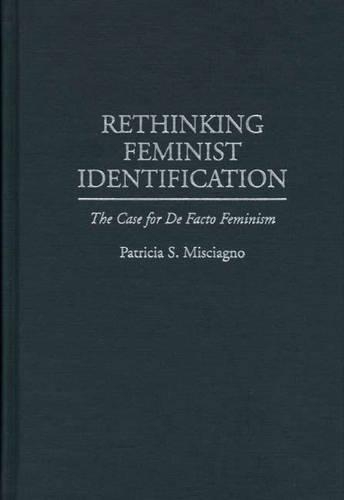
Rethinking Feminist Identification: The Case for De Facto Feminism
(Hardback)
Publishing Details
Rethinking Feminist Identification: The Case for De Facto Feminism
By (Author) Patricia Misciagno
Bloomsbury Publishing PLC
Praeger Publishers Inc
20th November 1997
United States
Classifications
Tertiary Education
Non Fiction
Political science and theory
305.42
Physical Properties
Hardback
160
Description
Is it possible to be a de facto feminist This question is explored and debated in this book about the phenomenon of people who support feminist positions but do not call themselves feminists. The author examines the implications of de facto feminism on both the level of feminist theory as well as that of practical politics in the U.S. In a theoretical manner, the author considers how the problem of abstraction in many of the behavioral approaches to feminist identity have the unintended consequence of reinforcing elite depictions of social change. At the level of practical politics in the U.S., this has left feminism open to the many polemical attacks that have risen in recent years. The author asks whether the attempt to bring about beneficial policy can be rendered ineffective if women do not identify with the feminist organizations working on their behalf.
Reviews
Misciagno's argument for de facto feminism is insightful.-Political Theory
"Misciagno's argument for de facto feminism is insightful."-Political Theory
Author Bio
PATRICIA S. MISCIAGNO is Assistant Professor of Political Science at Manhattanville College. She has written previously on Women and Politics and the American Presidency. She is currently at work on a book on the philosophy of social movements in America.
